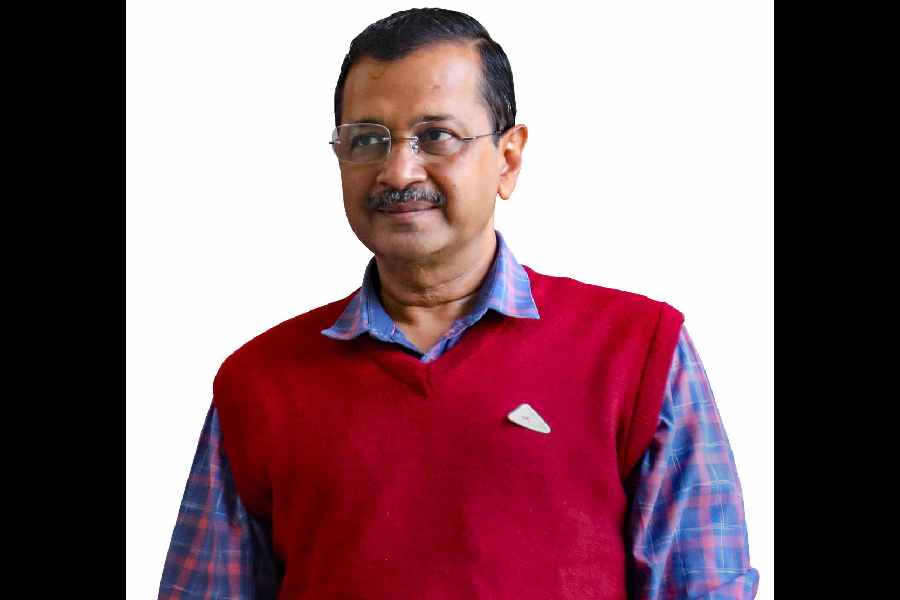Jinxed house
The sprawling government bungalow of the deputy chief minister of Bihar at 5, Deshratna Marg is once again the hot topic. The Rashtriya Janata Dal leader, Tejashwi Yadav, who is also the leader of the Opposition in the legislative assembly, vacated the bungalow recently, after overstaying in it for about nine months. The Bharatiya Janata Party leader, Samrat Choudhary, one of the two deputy chief ministers in Bihar, moved in on Vijaya Dashami. But should he have? The deputy CMs who stayed in the mansion ever since it started accommodating them nine years ago never completed their tenures. It has housed seven deputy CMs since 2015, each of whom eventually lost his position either as the government fell or because their influence in their respective parties waned. In fact, Yadav’s term too has been jinxed twice in his political career so far.
Additionally, there are rumours about the chief minister, Nitish Kumar, preparing to switch sides ahead of the 2025 assembly elections again. Afraid of the bungalow’s ominous effect, a few BJP leaders have suggested that it should be pulled down and a new building constructed. Others believe that long, arduous pujas and rituals might rid the premises of the ill fortune. A couple of BJP hardliners have even advised that it be declared a bhoot bangla — haunted mansion — and not be used for residential purposes. Is that why Choudhary moved in on the auspicious occasion of Vijaya Dashami to counter such omens?
Look West

The Aam Aadmi Party national convener, Arvind Kejriwal, who was criticised by the BJP for his rewadi or populist welfare doles, tweeted out the promise made by the American presidential candidate, Donald Trump, to reduce electricity bills. Kejriwal wrote, “Trump has announced that he will reduce electricity rates by half. Free ki revri reach US.”
Political tinderbox
Although Bihar has its hands full worrying about floods, droughts and poverty, among other things, a ‘Hindu Swabhiman Yatra’ proposed by the Union minister and senior BJP leader, Giriraj Singh, from Bhagalpur to Kishanganj has emerged as the state’s latest concern. It will start on October 18 and snake its way through Muslim-majority areas in an attempt to unite Hindus. Sources in the Nitish Kumar-led National Democratic Alliance government said that the march could vitiate the atmosphere in Bihar and lead to mischief among different communities. They also suspect that the BJP is organising it with the 2025 assembly elections in mind with the hope of reaping the fruits of communal polarisation.
A senior Janata Dal (United) minister pointed out that nothing much could be done to check the yatra because the BJP was a part of the government in the state and alsoat the Centre. “We will make all possible arrangements to ensure that the march passes off peacefully, but the said Union minister is well-known for his vitriolic tongue. And that is something over which we do not have any control,” the state minister added.
Deep pockets
The poll watchdog, Association for Democratic Reforms, has found that two of the three independent candidates elected in Haryana have criminal cases against them. The percentage of criminality amongst independent members is far higher than any other party. Independents are also the richest with per capita assets of Rs 114 crore. Little wonder then that they have played a decisive role in the electoral fates of several party candidates.
Worrying precedent
That the Haryana assembly election result was a shocker would be an understatement. Most pre-poll surveys and analyses had suggested an easy win for the Congress. Despite the strong anti-incumbency against the BJP-led Haryana government — eight out of 10 ministers were defeated — the BJP won in the state. The ripples of the Congress’s defeat in Haryana are being felt even in Assam, which goes to polls in 2026. The Congress’s foot soldiers and mid-level leaders in Assam are worried that the party may face a similar fate — or even worse — in spite of the Congress-led Opposition alliance strongly challenging the BJP-led ruling alliance.
Congress insiders confide that the problem is with the five senior state leaders: the Assam Congress president, Bhupen Kumar Borah, the leader of the Opposition, Debabrata Saikia, the members of Parliament, Gaurav Gogoi, Pradyut Bordoli and Rakibul Hussain. Sources admit that while they are the only influential leaders at the moment, none of them can control the party alone, like the late Tarun Gogoi or Hiteswar Saikia. Despite the show of unity in public, the leaders lack cohesion and have personal agendas. If left unchecked, Assam can end up like Haryana where senior leaders’ vested interests undid all pre-poll forecasts. Party insiders opine that only a common goal, instead of individual gains, can ensure the Congress’s win in Assam. Clearly, the Haryana results have shaken the Congress core.











